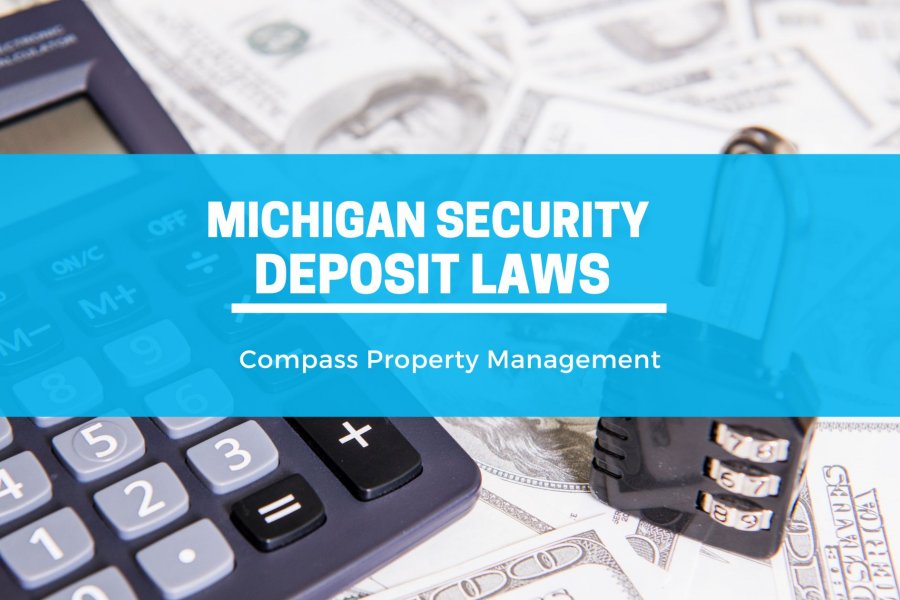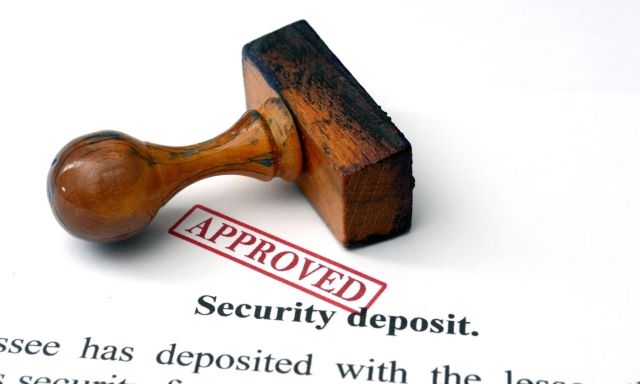
Michigan Landlord-Tenant Laws gives landlords the right to request a resident's security deposit. As a Michigan landlord, this allows you to safeguard yourself against a number of potential financial damages that can result from renting out your home under the landlord-tenant laws.
You can use your resident’s security deposit to cover damages incurred during the tenancy that exceed normal wear and tear. Such damages to your rental unit include missing fixtures, holes in the wall, broken tiles or windows, and heavily stained carpets.
If the residents cause such damages while they rent the property, you can use the entire security deposit or a portion of it to cover the repair costs under the landlord-tenant laws.
Aside from covering damage exceeding normal wear and tear, you can also use a resident's security deposit to cover the following things in your rental unit:
- Utilities if the resident fails to pay at the time they’re moving out.
- Cost of professionally cleaning the property.
- Loss in rent payments that you may have incurred after the resident violated the lease or rental agreement.
- Lost money through the rental income that you may have incurred after residents abandoned their rental property.
A Guide to Michigan Security Deposit Laws
As a landlord, you have certain obligations under the state’s security deposit laws. The laws govern anything from the security deposit amount you can charge a resident, how you must store it, the deductions you can make, to when you can return it.
These guidelines apply to landlords who require a security deposit from their residents as part of the move-in costs.
1. Michigan Security Deposit Limit
Under state law in Michigan, the most you can charge a resident as a security deposit is one-and-a-half times the cost of rent. The monthly rent can vary.

For instance, if you charge a monthly rental price of $1,500 for the rental unit, then the maximum you can charge as a security deposit is $2,250.
Charging any amount exceeding the state’s security deposit limit would be unlawful.
2. Non-Refundable Fees
The state of Michigan doesn’t allow landlords to charge residents non-refundable security deposits under the landlord-tenant law. You have an obligation to return security deposits, minus any allowable deductions, after the resident leaves the premises of the rental unit.
3. Storing a Resident’s Deposit in Michigan
Landlords in Michigan can store their residents’ deposits in either of two ways. The first option is to place security deposits in an escrow account. The escrow account must be in a regulated financial institution, like a bank or credit union.
The other option is to post a surety bond or cash bond for the amount of the resident’s deposit. If you go with this option, you’d then be free to use the resident’s deposit money as your own. Use a last termination inventory checklist to provide proof if deducting from the security deposit. Any damage from the last prior residents should be written down and accounted for.
4. Written Notice After Security Deposit Receipt
Residents in Michigan have a right to receive a receipt of notice from the landlord. You must do this within 14 days.
On the written notice, you must notify the resident of the following things if a resident assumes possession of the property:
- Your name and the address where you recieve mail.
- The manner in which you’re storing their security deposit, as well the address of the financial institution, or surety where you’ve stored the deposit at.
- The resident’s obligation to provide you with a forwarding address within four days of moving out.
- The other document you must provide your resident after receipt of the money for their deposit is an inventory checklist. This must be done at the time the resident is moving in.

The resident must receive two copies of the move-in checklist. The checklist must detail all items available in the unit, such as the carpet, appliances, and windows. Obtaining possession of the security deposit must come after this inpsection.
The resident must review the move-in checklist and then take note of the property’s condition. They must then send one copy to you within seven days of moving in. Be sure to include this notice period when you provide the information to the resident.
5. Reasons to Withhold a Resident’s Security Deposit in Michigan
In Michigan, you can make deductions to a resident’s security deposit for any of the following reasons under the Michigan compiled laws:
- Unpaid utility bills: Most, if not all, of the utilities will be in a resident’s name during a lease term. If they move out without paying their utility bills, you can make appropriate deductions on their deposit to cover them.
- Unpaid rent: Failure to pay rent is a serious breach of the lease agreement. If a resident moves out with unpaid rent, under Michigan law, you can use part or all of their deposit to cover your losses from monthly rent.
- Lease violation: Some lease violations can also cause you financial losses. An example of this is when a resident abandons their rental unit. In such a situation, you can cover your losses by making appropriate deductions on their security deposit.
- Damage exceeding wear and tear: Examples of this kind of damage include missing fixtures, holes in the wall, and broken windows or tiles.
6. A Walk-Through Inspection
Michigan landlord-tenant law gives residents a right to a walk-through inspection. Legal research and legal forms may ask for a walk-through inspection should your tenants challenge a deduction to the security deposit. If a landlord fails to do this, it may be hard to prove the tenant did the damage.

When a resident is moving out, you must complete an inventory checklist and make an itemized list of damages caused to the unit.
7. Security Deposit Refund in Michigan
In Michigan under the security deposit law, you have 30 days once the resident moves out to return the money to the resident's forwarding address, minus allowable deductions. If you’ve made any deductions, you must mail the balance alongside an itemized list of damages and their corresponding deductions to the resident’s forwarding address.
The resident should respond to the notice within seven days. If they dispute the deductions on the itemized list, it’ll be your obligation to initiate a lawsuit within 45 days of the resident moving out, but you mustn't distribute any sensitive or confidential information.
Failure to do this when there is a dispute between you and the resident can result in you paying the resident money worth up to two times the original security deposit amount. A landlord's notice of the deductions must be provided before the resident leaves.
Also, wrongfully withholding a resident’s security deposit can have potential legal ramifications. You may forfeit any right to withhold any portion, as well as become liable for the resident’s expenses and legal fees. Disputes surrounding security deposits are handled in small claims court.
8. Change in Property Ownership
If there’s a change in property ownership, you must transfer the deposit, minus any allowable deductions, to the incoming landlord. Then, after the transfer, you must provide Michigan tenants with the new landlord’s name and mail address to begin good landlord-tenant relationships for the new resident and owner.
Conclusion
Do you still have a question regarding Michigan security deposit laws? If you do, Compass Property Management can help.
We’re a top property management company in West Michigan with the experience and know-how to fulfill all of your property management needs. Get in touch today to learn more!
Disclaimer: This blog should not be used as a substitute for legal advice from a licensed, qualified attorney in your state. Laws change, and this post might not be updated at the time of your reading. Please contact us for any questions you have in regards to this content or any other aspect of your property management needs.
